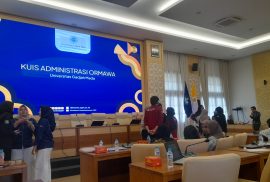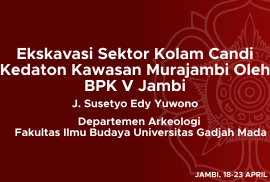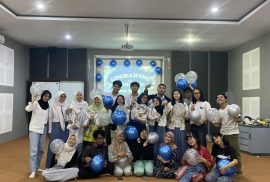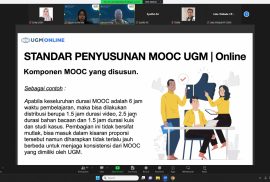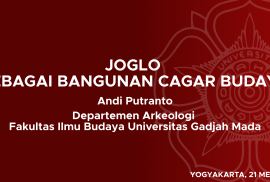On Saturday, May 18, 2024, the UGM Directorate of Student Affairs held the UGM Student Organization Administration Workshop 2024 aimed at all Faculty / School Student Institutions, Student Communities, and Student Activity Units (UKM) at Universitas Gadjah Mada UGM to be given material on student organization administration. This activity was held in Multimedia Room 1 3rd Floor, UGM Main Office, inviting a number of student affairs resource persons to provide a number of material topics. Topics discussed included correspondence, information technology services, and organizational administration management.
In this activity, one of the students of the Faculty of Cultural Sciences UGM who represented the Gadjah Mada Debating Society UGM Student Activity Unit, I Putu Adhimas Radiansyah Aryawan, as Secretary, attended the workshop agenda which began with a speech by the Head of the Subdirectorate of Organization, Facilities, and Student Welfare, Mrs. Desi Yulianti, S.E., M.Acc.. Then, it was continued with correspondence material and correspondence script in accordance with applicable language and structure rules. On the topic of this material, representatives of student organizations were given practical examples interactively through reviews of examples of correspondence scripts of several student organizations by Mrs. Martindah Hanurani Budi Sukmarhayu, S.Pd.. Followed by IT services and information systems by Aziz Hendra Atmaja, S.Kom., from the UGM Information Technology Directorate, discussing information technology services such as Google Drive, OneDrive, Microsoft 365, and others that can support the administrative work of student organizations.
After the break session, the last material agenda was the Administration of Student Organizations presented by Ahmad Yuana Putra, S.Si., Staff of the Directorate of Student Affairs UGM, who is also a former administrator of the UGM UKM Communication Forum (FORKOM) and former Chairman of BEM Biology UGM. In this agenda, Mas Yuana shared his memorable experiences about the importance of managing well-documented organizational administration when he was an active UGM student who had been involved in various committees and organizations. After the experience sharing session, the activity began to end with a random group quiz session by answering 10 quiz questions correctly.
Through the administrative workshop activities held, it is hoped that the organization administrators can understand the workflow and orderly in working on appropriate organizational files and administration and students are also closer to the UGM Directorate of Student Affairs from various facilities and infrastructure that have been provided to support student organizations.

